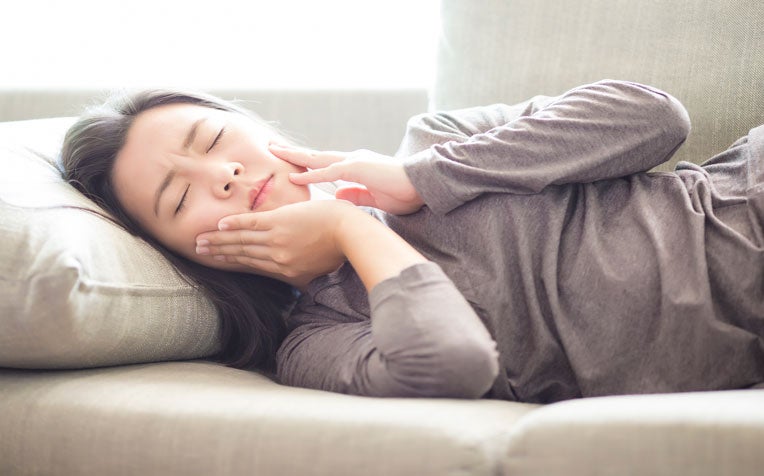
Pain may occur at different parts of the body for women.
Do menstrual cramps force you to curl up in pain? Or have you been enduring agonising pain caused by arthritis, migraines, slipped discs or other medical conditions? Do you fear the pain that may come with childbirth, or with any form of surgery?
Dr Sng Ban Leong, Senior Consultant from the Department of Anaesthesia at KK Women's and Children's Hospital, gives detailed answers to your questions.
Question by mahto.vinita
Hi, I am 33 years old and a mother of a 2 year old. I have had terrible back aches during my menses ever since I remember. My back bone has started hurting really bad after I gave birth. I also have one sided headaches almost every 10 days. I take 2 tablets of Tylenol or 1 tablet of Panadol for my head ache but just try to bear the pain during menses. Please suggest if I can do something to reduce these pains and aches. Thank you, Vinita
Answered by Dr Sng Ban Leong, Senior Consultant, Women's Anaesthesia, KK Women's and Children's Hospital
Having pain during menses or dysmenorrhoea, is a common gynaecological concern. Medications that can reduce and ease pain may include non-steroidal anti-inflammatory drugs (NSAIDs) and hormonal contraceptives. Transcutaneous electrical stimulation and acupressure have also been reported to relieve pain. You may wish to consult a pain specialist to seek further assessment and medical advice.
Question by lxiferette13
Hi, I'm 32 this year and I'm chinese. I have my menses when I'm 10-11 years old. I have no menstruation cramps until I was about 17-18 years old. I was in great pain that I was send to the hospital and they referred me to the gyne. The gyne did a few scans before, during and after my menses and I was told that there is a small cyst in one of my ovaries, which it will discharge along with my menese. They told that it's not a big problem back then. I have since been having menstruation cramps from that day, and the pain has now escalated (around my early 20s) to the point where I will need to take MC from work. I have recently went to NUH O&G to check again on this problem and was told that it's either I give birth and the pain might go away or they put me on birth control pills which will help ease the pain. I'm hoping to understand more. Thank you.
Answered by Dr Sng Ban Leong, Senior Consultant, Women's Anaesthesia, KK Women's and Children's Hospital
Having pain during menses or dysmenorrhoea, is a common gynaecological concern. Medications that can reduce and ease pain may include non-steroidal anti-inflammatory drugs (NSAIDs) and hormonal contraceptives. Transcutaneous electrical stimulation and acupressure have also been reported to relieve pain. An example of a chronic pain condition that may present this way may include endometriosis, in which the lining of the womb is found outside the womb cavity. You may wish to have a more in-depth discussion with your primary healthcare provider.
Question by sweetzlyn
I have recently been diagnosed as having fibroids and adenomyosis. I have heavy bleeding during menstruation accompanied with severe cramps. Recently, I am getting very bad cramps that make me almost fainted and this happens with or without menstruation. The pain is always at the same spot in the pelvic area. Doctors and nurses I consulted claim fibroids and adenomyosis do not cause such excruciating pain. What else is causing such pains and what should I do to find the root cause of it? Will a hysterectomy end my problems?
Answered by Dr Sng Ban Leong, Senior Consultant, Women's Anaesthesia, KK Women's and Children's Hospital
Having pain during menses or dysmenorrhoea, with heavy bleeding or menorrhagia are common gynaecological complaints. Medications that can reduce and ease pain may include non-steroidal anti-inflammatory drugs (NSAIDs) and hormonal contraceptives. Transcutaneous electrical stimulation and acupressure have also been reported to relieve pain. If there is associated nerverelated pain, medications can also be prescribed to reduce pain sensitivity. You may wish to consult a specialist for a detailed clinical examination and imaging to arrive at a diagnosis. After which, the specialist will be able to advise you on the benefits and risks involved for each treatment option.
Ref: R14
Contributed by
















 Get it on Google Play
Get it on Google Play